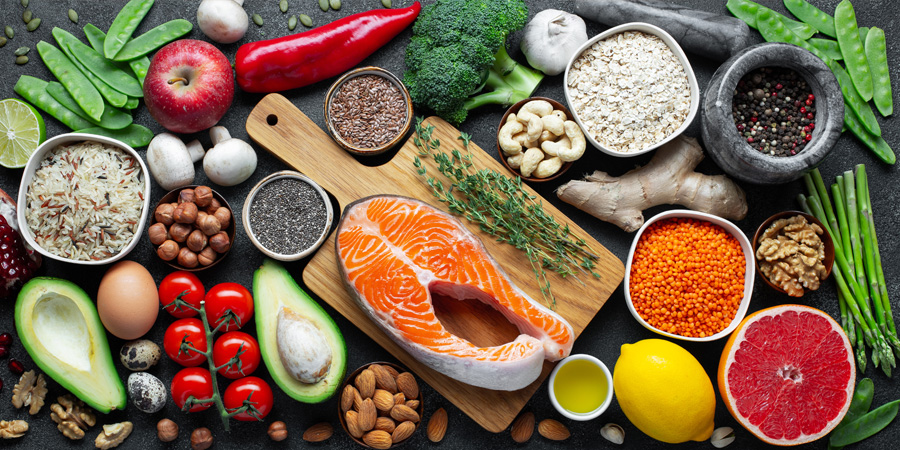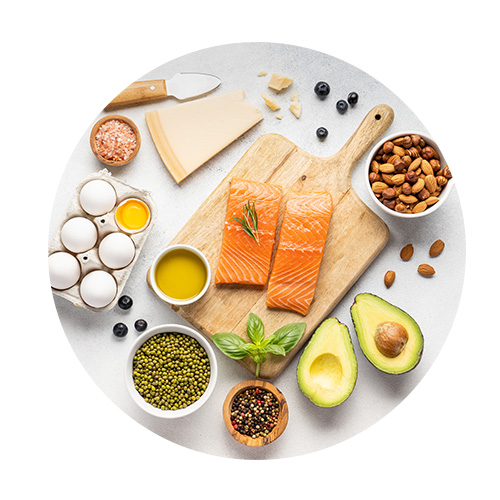Scientific news

Discover five recent scientific articles from our food, health and sustainability watch.

Fruit and vegetables contribute significantly to the population’s intake of many key nutrients. While inadequate intakes of fruit and vegetables are observed in many populations, a recent study aimed to determine whether this insufficient consumption may lead to inadequate intakes of certain micronutrients. Dietary intakes of nearly 10,000 American adults, followed in the NHANES cohort , were analysed to determine the level of fruit consumption and the intakes of various nutrients (Vitamin A, vitamin C, calcium, magnesium and potassium). According to this work, two-thirds of American adults consume less than half of the recommended daily intake of fruit. People who did not consume fruit regularly had an increased risk of inadequate intakes of vitamin C and potassium. Conversely, no association was observed between low fruit consumption and inadequate intakes of vitamin A, calcium and magnesium.

Excessive screen time, high consumption of energy-dense foods, and low consumption of fruit and vegetables are important risk factors in children. A Nepalese study assessed the occurrence of these behaviours among 5- to 9-year-olds. Interviews with 352 parents were conducted to assess screen time , as well as children’s fruit and vegetable and energy-dense food intakes. Overall, nearly two-thirds of the children had at least 2 of these 3 risk factors, with nearly one-quarter combining all 3 (high screen time, high energy-dense food consumption, and low fruit and vegetable consumption). The frequency of these risk behaviours is significantly higher in children with access to connected devices and with high parental screen time.

The Go-Golborne program aimed to improve eating and movement behaviours of children aged 6 to 11 from deprived areas in London. This intervention brought together local stakeholders and offered participants activities based on six health themes . After 3 years of intervention, the evaluation shows a reduction in the consumption of sugary drinks and car travel between home and school. Screen time increased. No change was observed for the other parameters studied. Thus, the authors emphasize the essential role of local authorities in changing food environments and the need for close collaboration among stakeholders to improve the effectiveness of such interventions.

A recent study examined the association between the amount and variety of fruits and vegetables ingested and mortality in people over the age of 50. Data from the Guangzhou Biobank cohort were analysed for this purpose. According to this work, the diversity of fruits and vegetables is better associated with a lower risk of mortality in elderly subjects than the amount. Consumption of a wide variety of green/white fruits and vegetables is associated with lower risk of cardiovascular and all-cause mortality. A greater variety of red/purple fruit and vegetable intake is associated with lower risks of cancer and all-cause mortality.

Individuals suffering from inflammatory bowel disease have an increased risk of colorectal cancer, partly due to a persistent inflammatory state that characterizes many of these chronic conditions. While a growing number of studies show that some nutrients may influence levels of inflammation associated with inflammatory bowel disease, a review of the literature examined the potential role of nutrition in preventing these conditions. According to this work, dietary interventions characterized by high intake of omega-3, low intake of animal protein, processed foods and alcohol are likely to reduce the inflammatory status of inflammatory bowel disease and thus reduce the risk of associated cancer.
